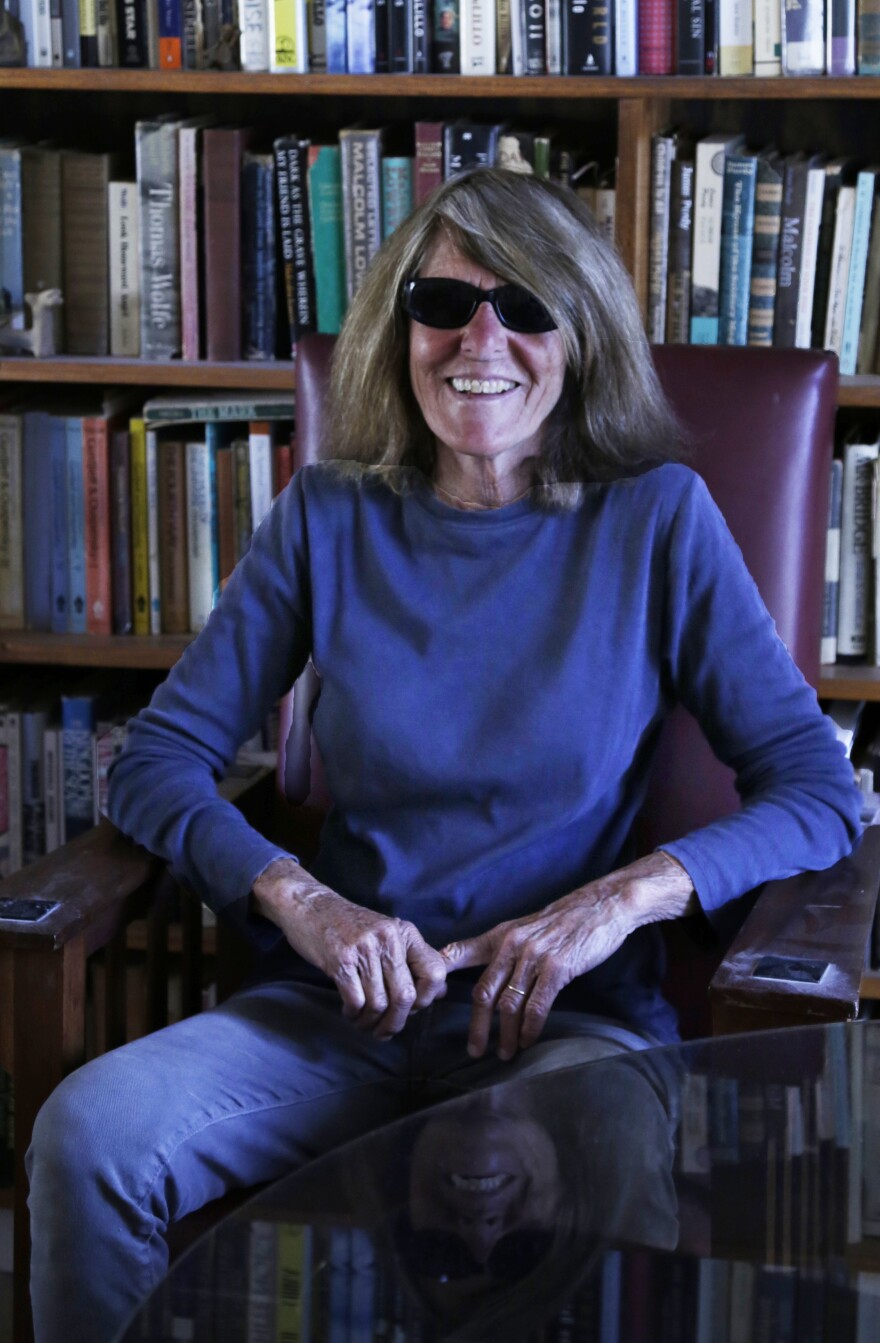Joy Williams just published a highly anticipated novel — her first since 2000’s “The Quick and the Dead,” which became a finalist for the Pulitzer Prize. And as longtime fans eagerly dig into “Harrow,” Washington University Libraries is shining a spotlight on both Williams’ latest release and her entire body of work — including some of her earliest pieces.
“Pony’s Surprise,” a short story Williams penned at age 8, is just one example of what visitors will find in the new exhibition “Joy Williams: Honored Guest” at Olin Library (and online).

“Once there was a little pony, and his name was Black Night,” begins the one-page piece, Williams’ first-ever literary submission. As an accompanying exhibit note suggests, it’s “perhaps the last of her stories with a happy ending.”
Indeed, Williams has in the seven decades since gone on to become known for tales that, with deep wit and gorgeous prose, take readers to unsettling places full of bizarre characters and the dark corners of human nature.
That’s certainly true of “Harrow.” The novel depicts a distinctly apocalyptic landscape, but as Williams explained on Friday’s St. Louis on the Air, it’s more or less set in the present.
“The apocalypse has come and gone and one-third of the world is gone, but they can function with the other two-thirds,” she said of the book’s setting. “Disney World and the bowling alleys are all up and running. Huge car dealerships still exist. I find this today, after all we've been through with COVID: There's just no kindness or resetting our attitudes towards the Earth. And we've been warned and warned again.”
Williams’ chief topic these days is humanity’s blithe complicity to environmental destruction. She’s frustrated by conversations about adapting to climate change rather than grappling with our role in it. “There hasn't been any moment where we've sat down and thought, why did we come to this point? This is terrible. We're all so involved. Now it's all about just ‘building better buildings smarter.’ We're not thinking about our culpability.”
The exhibit at Washington University contains various drafts of “Harrow,” as well as an uncorrected proof. Unlike many authors working today, Williams leaves documentary evidence of her edits, famously writing on a typewriter and using Scotch tape and scissors to cobble together her pages.
Joel Minor, who oversees Wash U’s Modern Literature Collection where the Joy Williams Papers are housed, notes that the physicality of Williams’ drafts make her archive a rich one for researchers and students of writing.
“She creates these beautiful drafts that students and scholars and fans can come in and see the evolution of the story of the novel,” Minor explained.
Many of those drafts are currently on view, along with Williams’ correspondence with fellow writers (including William Gass, Raymond Carver and Don DeLillo, among others).
Even Williams found herself surprised as she visited this week by everything that’s contained with the archive.
“I was a little alarmed, actually, when Joel introduced me yesterday, and he was quoting things from what they had found going through the papers I'd given,” Williams marveled. “Apparently I hadn't combed through them quite as perhaps as extensively as I might have.”
Related Event
What: Wash U Libraries’ exhibition “Joy Williams: Honored Guest”
When: Now through Jan. 31
Where: Olin Library’s Ginkgo Room (1 Brookings Drive, St. Louis, MO 63130)
“St. Louis on the Air” brings you the stories of St. Louis and the people who live, work and create in our region. The show is hosted by Sarah Fenske and produced by Alex Heuer, Emily Woodbury, Evie Hemphill and Lara Hamdan. Jane Mather-Glass is our production assistant. The audio engineer is Aaron Doerr.






